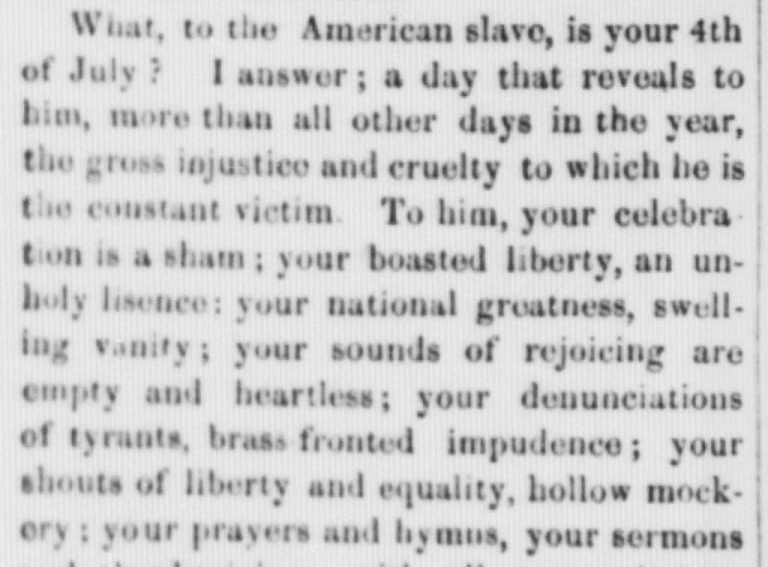Frederick Douglass’s powerful “What to the Slave Is the Fourth of July?” speech, delivered on July 5, 1852, stands as a searing indictment of American hypocrisy regarding slavery. A key element of this speech is Douglass’s evocative comparison of America to Babylon. Understanding why he draws this parallel reveals the depth of his critique and the urgency of his call for change.
The Biblical Resonance of Babylon
Douglass explicitly quotes Psalm 137, recounting the Israelites’ exile in Babylon. Forced to sing songs of their homeland, they lament, “How shall we sing the Lord’s song in a strange land?” This biblical allusion resonates deeply within Douglass’s speech because it directly mirrors the condition of enslaved African Americans.
America as a “Strange Land”
For enslaved people, America, despite being their birthplace for generations, was a “strange land” where their fundamental human rights were denied. Like the exiled Israelites, they were forced to participate in celebrations (the Fourth of July) that symbolized freedom and equality, principles starkly denied to them. This forced participation felt like a cruel mockery, echoing the Babylonians’ demand for songs of Zion.
Loss of Freedom and Forced Labor
Babylon represents a place of captivity and forced labor, mirroring the brutal reality of slavery in America. The Israelites were forced to build for their captors, just as enslaved people were forced to work for their enslavers without compensation or recognition of their humanity. This parallel underscores the injustice inherent in the institution of slavery and the denial of basic human dignity.
Hypocrisy and the Distortion of Faith
Babylon, in the biblical narrative, is also associated with idolatry and moral corruption. Douglass highlights the hypocrisy of a nation that professed Christian values while perpetuating the sin of slavery. He criticizes the “religious parade and solemnity” of the Fourth of July celebrations as a “thin veil to cover up crimes.” This critique aligns America with Babylon’s perversion of faith and morality.
A Call for Judgment and Transformation
By comparing America to Babylon, Douglass wasn’t simply highlighting similarities. He was invoking the biblical narrative of judgment and eventual liberation. Just as Babylon fell, Douglass believed America would face divine reckoning if it failed to repent and abolish slavery. The comparison serves as a stark warning and a call for radical transformation. Douglass sought not just reform but a fundamental shift in the nation’s moral compass, a return to the true principles of freedom and equality upon which it claimed to be founded. His use of the Babylon analogy served as a powerful rhetorical tool to underscore this urgent need for change.

